Longevity
No health topic is larded with more hype, false claims and pricey snake oil than longevity. In my NatGeo coverage, I sorted through the science to figure out what’s credible and what’s nonsense and to explore the innovations that offer real hope for extending human life, or at least keeping us healthy and vital as we age.
Can Aging Be Cured? Scientists are Giving it a Try
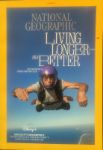
Cutting-edge technologies are revealing the intricacies of human aging and sparking research into drugs to slow it, or even reverse it. National Geographic, Dec. 28, 2022.
Can Positive Thinking Prolong Your Life?
Studies show that staying optimistic about aging can be as beneficial to your health as exercising or eating well. National Geographic, March 23, 2023.
Could Fido be our Best Hope to Reverse Aging in Humans?
A canine elixir for aging could lead to one for us: They live in our houses, breathe the same air, and suffer many of the same ailments that affect older people.National Geographic, Jan. 24, 2023.
Can Fasting Help You Live Longer? Here’s What the Science Says
It’s a popular practice, and research shows it has real health benefits. A new diet that tricks your body into thinking it’s fasting may have similar benefits. National Geographic, Jan. 17, 2023.
‘Zombie Cells’ Could Hold the Secret to Alzheimer’s Cure
In an aging brain, cells that stop working yet refuse to die may play a role in dementia — making them key targets for future medications.National Geographic, Jan. 10, 2023.
COVID-19
On the Hunt for the Next Deadly Virus
Searching for new viruses and tracking down the source of pandemics, scientists are laying the groundwork to prevent ‘spillover’ diseases. National Geographic, June 16, 2020.
Maternal and Child Health
These states are starting to embrace doulas — especially for vulnerable moms. Center for Health Journalism, Jan. 31, 2020.
We often don't know which drugs are safe during pregnancy — can new guidelines change that? Center for Health Journalism, July 10, 2019.
We’re failing at vaccinating kids against HPV — and that could cost lives. Center for Health Journalism, July 26, 2019.
Even as the epidemic rages, alarming numbers of teens leave ER with opioid prescriptions. Center for Health Journalism, May 30, 2019.
Mind-Body
Why our Fast-Paced Society Loves Yoga
This ancient practice is not only a fitness regimen, but science shows it’s also an antidote to modern stress. National Geographic, Dec. 17, 2019.
Personalized Medicine
When the editors of NatGeo asked me to write about new frontiers in medicine, the first thing I did was volunteer to be a research guinea pig, get my genome sequenced and undergo extensive microbiological testing. I wanted to understand the complexity of what’s come to be known as “precision medicine.” Unlike the traditional one-size-fits-most medical model, the new approach uses gene research and data analytics to customize prevention, diagnosis and treatment. The advances will upend medicine as we know it.

A new era of health care is coming. Precision Medicine will monitor our health moment to moment, predict our risk of disease and devise treatments tailored to each of us. January 2019.
Addiction
The editors of National Geographic asked me to tell the story behind the rising toll of addiction. Why do so many people get hooked on substances and behaviors we know will harm us? What does new research reveal about addiction and the brain? Can scientific insights help more people recover? I spent nearly a year interviewing researchers, clinicians and people struggling with addictions of all sorts and wrote two stories:
How Science is Unlocking the Secrets of Addiction
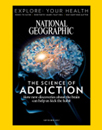
We’re learning more about the craving that fuels self-defeating habits — and how new discoveries could help us kick the habit. Sept. 2017
Babies Fall Victim to the Opioid Crisis

Born to women addicted to drugs or in treatment, newborns suffer through withdrawal. Sept. 2017.
End-Of-Life Care
"Nobody wants to die badly. Hospice care offers the best hope for dying well and living fully until we do.” Those are the opening words of Changing the Way We Die, the book I wrote with my longtime colleague and friend Sheila Himmel. Our fathers had died around the same time, mine in a hospital and Sheila’s in hospice care. Our conversations about our very different experiences planted the seeds for the book.
Why Doctors Don’t Want Their Own Medicine at the End of Life
What the rest of us can learn from them. June 4, 2014.
Treatment or Comfort? Why Must Dying Patients Choose?
Insurance rules keep people from getting the end-of-life care they need. May 15, 2014.
Chapter 1: What Do You Want to Do For the Rest of Your Life?

Changing the Way We Die, an Amazon bestseller and winner of an Independent Book Publishers Award; and Breaking Ground: the History of the YWCA in the Santa Clara Valley.
Fasting to Death
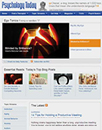
Radio Star’s Surprise Disclosure Rekindles Debate Over Aid in Dying. PsychologyToday.com
Why Doctors Don’t Want Their Own Medicine When They’re Dying
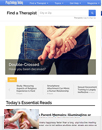
And What the Rest of Us Can Learn From Them. PsychologyToday.com
Are Moments of Death Must-See TV?
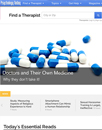
The new series “Time of Death” is hard to watch. It’s even harder to turn off.
PsychologyToday.com
Health
I began my career as a newspaper medical reporter, and while I’ve written about many other subjects over the years, health and medial journalism has been a constant.
Can You Trust Your Mammogram?
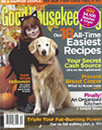
Why even smart doctors miss breast cancer — and how to make sure you’re getting the best care.
Good Housekeeping
Heal Yourself With Food
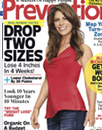
In just a few weeks, these women lowered their blood pressure, slashed their cholesterol or turned the tide on their diabetes, all with simple yet powerful changes to their diets.
Prevention
Your Doctor, Your Diet Coach

Doctors are prescribing drugs, “fat-dissolving” injections and severe diets to help patients lose weight. Fran Smith reports on the trend — the good, the bad and the dangerous.
O: The Oprah Magazine
Ignorance Is No Excuse

Few doctors know how to perform abortions and women pay for their lack of training
Salon
Other Topics Of Interest
The standard advice for freelance journalists is to establish a niche. But for me the joy of journalism is more about the story than the subject. In retrospect, I found my way into this business because I’m not at heart a “specialist” — I’m interested in too many things. I jump at opportunities to write stories that expose wrongdoing, celebrate people working to make the world a better place, and explore the magic and the struggles of being alive.
Intelligent Designs

When information needs to be communicated, Edward Tufte demands both truth and beauty.
Stanford Magazine
Back From the Brink
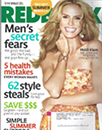
How three women walked the long, hard road out of despair and finally became free
Redbook